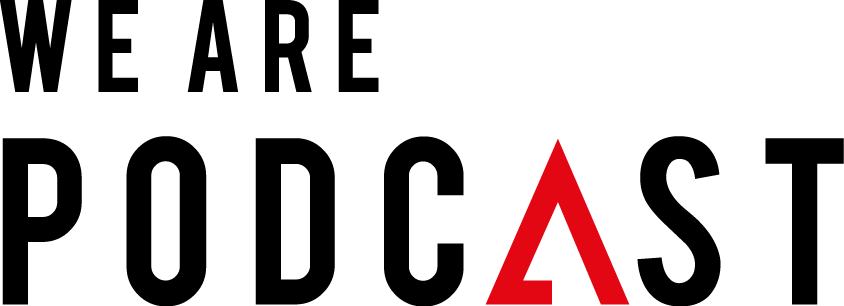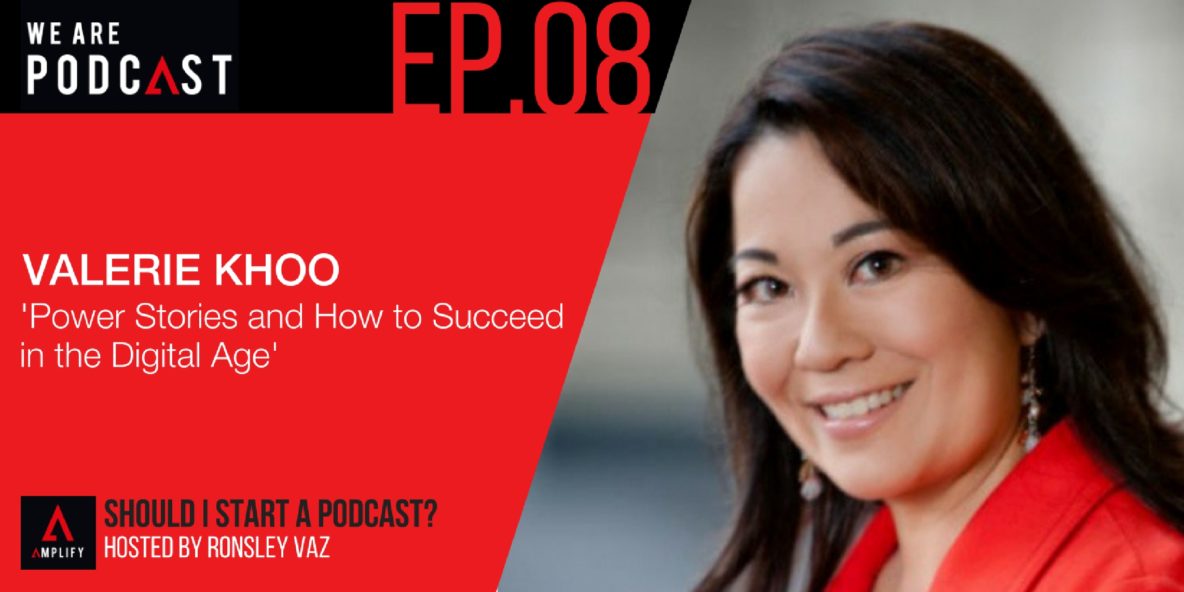Valerie Khoo is an author, speaker and multi-passionate entrepreneur with several growing businesses under her belt. She is a prolific content creator who has steadily built her public profile over a period of years by personally engaging with her online community, not to mention adding value in the form of words (blog posts), audio (podcasting) and video.
I regard Valerie as one of the best content marketers in Australia. Not only that, she also leverages social media brilliantly for her business – the Australian Writers’ Centre – as well as for her personal brand.
Getting the balance right between business brand and personal brand is difficult; indeed, it’s an issue many professionals entrepreneurs face and grapple with. Another issue professionals face when it comes to ‘putting themselves out there’ on social media is managing one’s professional versus private self on social media.
In this episode we talk about:
- How did Valerie end up creating a podcast?
- The importance of chemistry between two people when hosting a show
- How is it feel like working when you have co-hosts?
- What have she managed to achieve so far from her Brand by doing a podcast?
- The different ways of monetizing
- What’s the biggest asset that a podcaster should have in interviewing people?
- The importance of structure to the interview and put everything in context
- Podcasting as PR tool
- Why podcasting is so hot all of a sudden?
- Podcasting forms connection faster, easy and accessible
- Getting topics with authentic, credible and consistent contents
- The importance to develop a stronger and more trusted connection
- Doing what to do what we like to consume
- Understanding a sustainable podcast and something that going to stick to people to be able to create a good podcast
- Creating a show that we are passionate about and something that we truly believed in
- What makes a good podcast?
- The disadvantage of podcasting
- The idea getting in television
- Identifying what to achieve to reach the target market
- The importance of defining what our goal is
- Determine what would be the right avenue to achieve our goal
- What would make Valerie’s podcasting journey easier?
- The common mistakes by some podcasters
- The importance of defining topics and limit the show into certain amount of time
What would’ve made it easier/What would you have changed?
“That’s a good question. What would make my life really super easy is if I would have a dedicated space that I can go to every time I want to do a podcast that has super-fast internet and importantly that the other person also has super-fast internet. Because I do many interviews for the various podcast , and people on the other end who I’m talking to whether on the phone or Skype or whatever sometimes they don’t seem to understand that these would have made my life easier as well. That having a drill in a background, the construction site in the next room is not conducive in a good interview or having talking to my 3D computer without a headset is not conducive to good audio. “
When someone is considering a podcast as a medium, how do I know if it’s for me?
“I think they should do what they like to consume. So if they listen to podcast, then I get it. I absolutely recommend they do a podcast. If they consume blogs, then do blogging. If they stay in YouTube and they love YouTube, then do it because then you doing something that you get. If you’ve never listened to a podcasting live and you want to create a podcast, well I think that’s not a good idea. I think you got to get in to podcast first or listen to podcast and understand what they do for you to be able to create a good podcast. One that actually going to be sustainable and one that actually going to get stick to people. “
“Because I have met some people who has started podcast and they lost interest or it sounds like each podcast sounds like a sermon. It’s like they preaching to people and people don’t want to be preach that. They want objective useful information from an expert yes but they don’t necessarily want that preachy kind of tone. And it’s different from expressing an opinion. It’s totally different. You know that’s something that you passionate about. And that something that you truly believed in as opposed to somebody’s saying “you should do these, you should do that.” You making sure what makes a good podcast what’s it going to resonates to you and then go for it. Because it’s cost effective, it’s fun when you’re in to it. And I say you establish that trusted connection with people quicker.”
How complicated is it to do a podcast?
“It always boil down to the internet. The speed of the internet. Because I used to live the country Victoria, and I travel a lot, I experienced very different speed of internet on a regular basis. Sometimes you can’t actually even record a podcast because the internet is so bad or it’s so bad because it’s going to impact to your audio. Lack of consistent reliable fast internet.”
How often should I podcast?
“I think you do need to be regular and consistent because people have that expectation, they just built into their lifestyle. I think at least weekly is ideal. Definitely some podcasts are more frequent than weekly and that’s totally fine especially if you’ve got extra episodes but having a minimum of weekly is ideal.”
What are the first mistakes that podcasters often make?
“I think that it comes down to structure. I’ve listened to some podcasts and there’s two co-hosts and it’s quite a ramble and it talks about anything for a long time and I think it’s totally fine to have two people into that conversation about whatever but I think you still need to define topics and limit yourself into certain amount of time. So if you rambling too much about something that’s really not in the interest of particular audience, you’re going to lose your audience. It comes down that structure as a common mistake that I say.”
“When they interview people I hear people put an interview voice. I know that they don’t talk like that in real life or I know that they don’t talk like that because in the preamble to the interview they’re just talking naturally like were talking now. They try to be more formally language in their questions where really it just having a chat. “
What are the most important things to consider?
“When interviewing people, it’s really important not just to have a ramble chat. It’s really important to have a structure to the interview and it’s really important also not to assume knowledge for your listeners because there are some listeners when they hear a particular term or they hear an anecdote or reference for something they may not know the background. So it’s really important to be able to always put everything in context and to explain something to listeners if they don’t necessarily have that background knowledge. You don’t want your listeners to put away confused or you know with questions. So it is very important to have a structure to the interview.”
“It’s so important to first define what your goal is. Who do you want to reach and what do you want them to do. So who’s your target market and what do you want them to do. And as soon you define your target market, you then can decide if these television show, podcast, blog or whatever worthwhile. Is this activity worthwhile? Will I be reaching my target market? Because so many people say “I just want to be on the morning show. I want to be in the financial review” without thinking “will imy target market actually reading the financial review. “Or is my target market actually watching that morning show. So it’s very important to try to step back and think about what’s your goal and then determine whether this avenue is the right avenue to achieve that goal.”
“As long as you continue to provide content that is authentic, credible and research all that sort of things obviously and consistent, If you develop a trust with that listener that is very hard to replicate in print or even In television because televisions are very hard to produce obviously but you definitely develop a stronger and more trusted connection in a short period of time. “
Which podcast should I follow, why and how often?
“Well a part from the Bond Appetit podcast which I listened to when I’m walking, because it’s not a running podcast, it’s a walking podcast. “
“I do listen from time to time to Amy Porterfield. She is a good example of somebody who last year did not podcast every week and there was no reason to the frequency in which she release her podcast. Sometimes it was two weeks, sometimes it was three weeks, sometimes four weeks. And that inherently just frustrating but this year or more recently anyway, she officially decided “I’m going to a podcast.” At least once a week or once every two weeks and not just whenever she feel like because I did find that very frustrating. “
“I do listen from time to time to “The Suitcase Entrepreneur”, Natalie Sisson. I listen to Timbo Reid, “Small business Big Marketing. I listen from time to time to Chris Ducker, The New Business Podcast. I listen to Beers, Blokes and Business, Sean Callanan. I do sometimes listen to Super-Fast Business with James Schramko . I cherry pick the one from Andrew Warner with Mixergy. From time to time, I deep in an hour of Conversion Cast, Tim Paige.”
Where to find Valerie Khoo
Resources
Website: http://valeriekhoo.com/
http://www.writerscentre.com.au/about/presenters/valerie-khoo/
Facebook: https://www.facebook.com/valeriekhoo
Twitter: https://twitter.com/valeriekhoo
Google Plus: https://plus.google.com/+ValerieKhoo/posts
Linkedin: https://www.linkedin.com/in/khoovalerie
Podcast (start-a-podcast): Play in new window | Download
Subscribe: RSS



